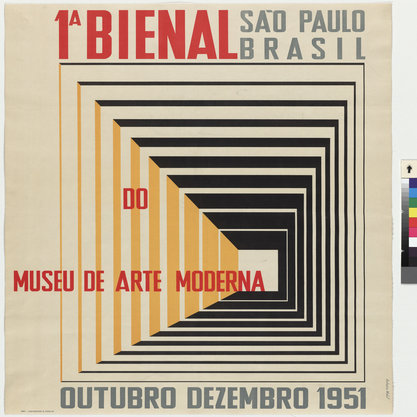Article
Samba By Lior, Mika
Article
Modern samba music and dance began in Rio de Janeiro’s Afro-Brazilian communities in the early 1900s and spread rapidly to international audiences through twentieth-century technologies of mass media, recording, and cinema. Rio’s samba developed from Bahian samba de roda, which has been danced and played by enslaved Africans and their descendants from the sixteenth century to the present. Modern samba differed from the circular samba de roda through its harmonic elements, the linear use of space, increased speed and footwork, and stylized upper body positions.
First brought to the US by Brazilian sensation Carmen Miranda through Hollywood films of the 1940s, samba’s numerous rhythmic variations have achieved broad global recognition in the twenty-first century. The fast-paced samba no pé singularizes Rio’s world-famous carnaval, which expanded through modern industrial fabrication of floats and costumes and through increasingly cross-national commerce while continuing to capitalize on influences from traditional Afro-Brazilian dance and percussion. The partner dance samba de gafieira has spread from its origins in Rio’s neighborhoods to nightclubs in urban locations across Brazil, North America, and Europe. Meanwhile samba reggae, a late twentieth-century reappropriation of samba within northeastern Brazil that integrates African aesthetic elements with reggae beats and steps has become emblematic of Bahian popular culture.



